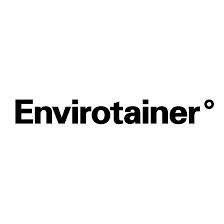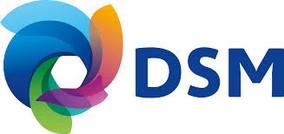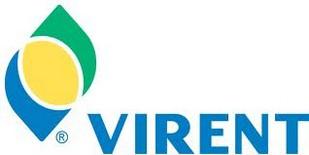




International Market Analysis Research and Consulting Group is a leading adviser on management strategy and market research worldwide. We partner with clients in all regions and industry verticals to identify their highest-value opportunities, address their most critical challenges, and transform their businesses.
IMARC’s information products include major market, scientific, economic and technological developments for business leaders in pharmaceutical, industrial, and high technology organizations. Market forecasts and industry analysis for biotechnology, advanced materials, chemicals, food and beverage, travel and tourism, nanotechnology and novel processing methods are at the top of the company’s expertise.
IMARC’s tailored approach combines unfathomable insight into the dynamics of companies and markets with close cooperation at all levels of the client organization. This ensures that our clients achieve unmatchable competitive advantage, build more proficient organizations, and secure lasting results.
Global Food Preservatives Market Research Report 2022-2027:
According to the latest report by IMARC Group, titled " Food Preservatives Market: Global Industry Trends, Share, Size, Growth, Opportunity and Forecast 2022-2027
," the global food preservatives market size reached US$ 2.8 Billion in 2021.
Food preservatives are defined as the specialized chemical ingredients or extracts added to the food products during their production to protect them from bacteria, microorganisms, spoilage and contamination.
The addition of these substances helpsin improving the shelf life and retains the nutritional valueof the food. Preservatives are also used to prevent changes in color, taste, or texture and delay the oxidization process in food.
Request for a PDF sample of this report:
https://www.imarcgroup.com/food-preservatives-market/requestsample
The escalating demand for convenient and ready to eat (RTE) food items across the globe represents one of the key factors driving the food preservatives market growth. This can be attributed to busy lifestyles led by the majority of the working population.
Moreover, due to rising health awareness, consumers are choosing food items that have clean label ingredients and longer shelf life. This, in turn, is driving the demand for natural food preservatives to keep the food free from artificial chemicals, which is acting as another significant growth-inducing factor.
The market is further driven by the growing awareness regarding hygienicallypacked food products. Other factors, such as the rising demand forflavor enhancers in the bakery sector and the increasing consumer expenditure capacities, are creating a positive outlook for the market further.
View Report TOC, Figures and Tables: https://www.imarcgroup.com/food-preservatives-market
Key Market Segmentation
The research report includes the following segments:
Breakup by Type:
• Natural
• Edible Oil
• Rosemary Extracts
• Natamycin
• Vinegar
• Others
• Synthetic
• Propionates
• Sorbates
• Benzoates
• Others
Breakup by Function:
• Anti-Microbial
• Anti-Oxidant
• Others
Breakup by Application:
• Meat and Poultry
• Bakery
• Dairy
• Beverages
• Snacks
• Others
Breakup by Region:
• North America
• Asia Pacific
• Europe
• Latin America
• Middle East and Africa
Competitive Landscape with Key Players:
• Albemarle Corporation
• Archer Daniels Midland Company
• BASF SE
• Cargill Incorporated
• Celanese Corporation
• Corbion N.V
• Dupont De Nemours Inc
• Galactic S.A
• Jungbunzlauer Suisse AG
• Kemin Industries Inc
• Koninklijke DSM N.V
• Tate & Lyle PLC
1. What was the size of the global food preservatives market in 2021?
2. What is the expected growth rate of the global food preservatives market during 2022-2027?
3. What are the key factors driving the global food preservatives market?
4. What has been the impact of COVID-19 on the global food preservatives market?
5. What is the breakup of the global food preservatives market based on the type?
6. What is the breakup of the global food preservatives market based on the function?
7. What is the breakup of the global food preservatives market based on application?
8. What are the key regions in the global food preservatives market?
9. Who are the key players/companies in the global food preservatives market?
Click here to visit the complete table of content with list of figures and tables: https://www.imarcgroup.com/food-preservatives-market/toc



We are the trusted business partners to the world's leading corporates, governments, and institutions





































We are the trusted business partners to the world's leading corporates, governments, and institutions




































© 2022 IMARC All Rights Reserved
This Publication and all it’s contents unless otherwise mentioned are copyrighted in the name of International Market Analysis Research and Consulting (IMARC). No part of this publication may be reproduced, repackaged, redistributed or resold in whole or in any part. The publication may also not be used in any form or by and means graphic electronic or mechanical, including photocopying, recording, taping or by information storage or retrieval, or by any other form, without the express consent of International Market Analysis Research and Consulting (IMARC).
Disclaimer: All contents and data of this publication, including forecasts, data analysis and opinion have been based on information and sources believed to be accurate and reliable at the time of publishing. International Market Analysis Research and Consulting makes no representation of warranty of any kind as to the accuracy or completeness of any Information provided. IMARC accepts no liability whatsoever for any loss or damage resulting from opinion, errors or inaccuracies if any found this publication.
IMARC, IMARC Group and Global Therapy Insight Series are registered trademarks of International Market Analysis Research and Consulting. All other trademarks used in this publication are registered trademarks of their respective companies.



